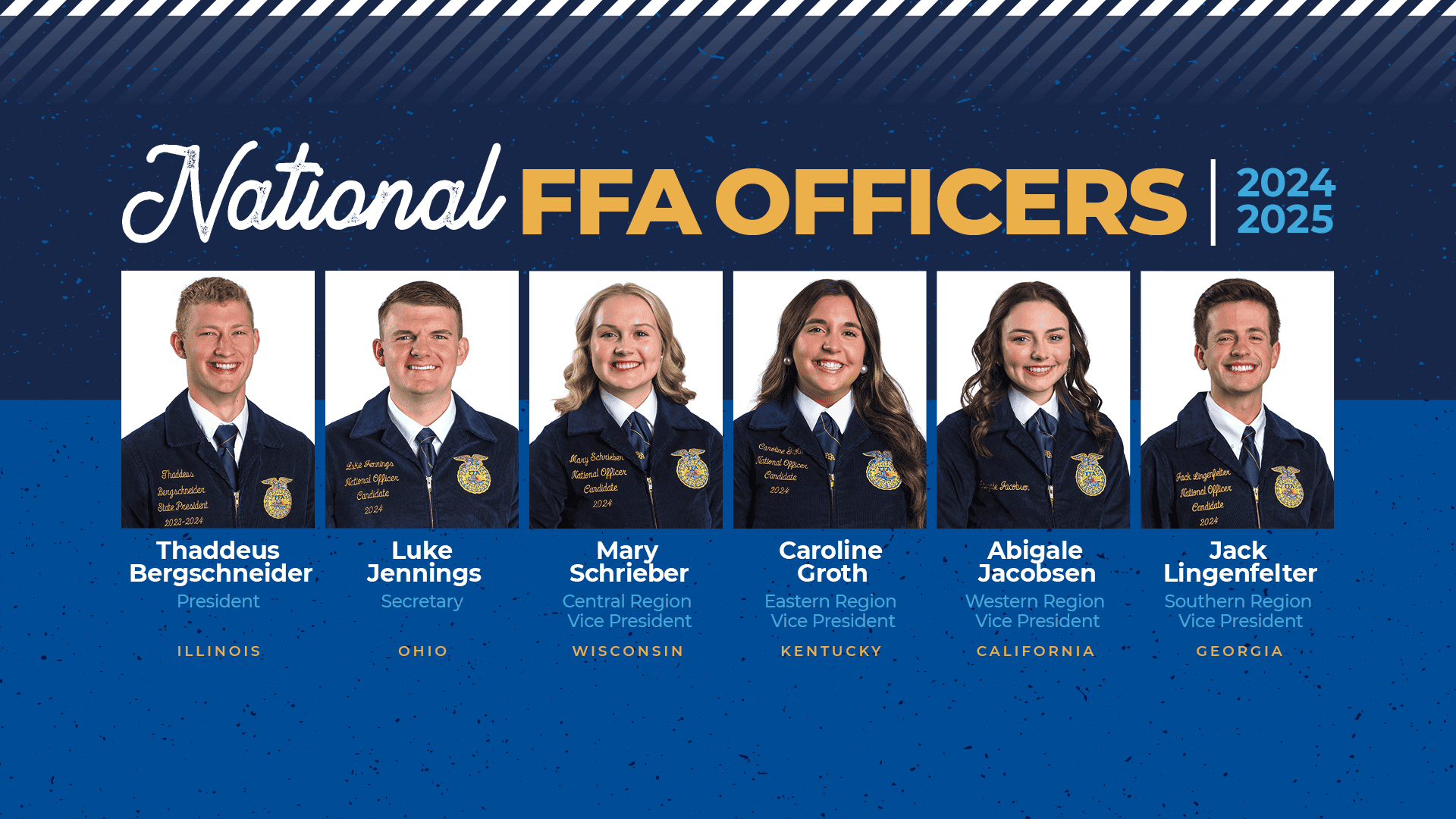national FFA

Overview
The National FFA Organization, commonly abbreviated as FFA, is a pioneering nonprofit youth organization dedicated to leadership development and agricultural education in the United States. Founded in 1928, FFA was designed to equip young people with the skills necessary for successful careers in agriculture and related industries. It is headquartered in Indianapolis, Indiana and comprises over 1 million members across more than 9,000 local chapters throughout the United States, Puerto Rico, and the U.S. Virgin Islands.
Recent Developments
- February 2025: FFA celebrated its annual National FFA Week from February 15-22, where members engage in various community activities and awareness programs. This year emphasized broader community involvement and digital campaigns leveraging social media to highlight the organization's impact on youth leadership and development.
- January 2025: The National FFA Organization highlighted the success of its international exchange program with Japan. The exchange allowed FFA officers to experience global agricultural practices while fostering international camaraderie with their Japanese counterparts.
- Late 2024: The election of a new National FFA Officer team at the 97th National FFA Convention in Indianapolis underscored the continuous leadership transition as Thaddeus Bergschneider from Illinois was named National President, amongst other new officers.
- December 2024: The FFA Foundation announced new board members headed by Aaron Wetzel of John Deere, focusing on securing funding for developing leadership skills and enhancing agricultural education through corporate partnerships.
- October 2024: During its convention, held virtually due to the COVID-19 pandemic, the FFA elected officers and recognized outstanding achievements in agricultural proficiency and leadership events.
Company Information
| Attribute | Information |
|---|---|
| Founding Date | 1928 |
| Headquarters | Indianapolis, Indiana, USA |
| Founders | Henry C. Groseclose, Harry W. Sanders, Walter S. Newman, Edmund Magill |
| Industry | Education/Nonprofit |
| Number of Members | Over 1,027,273 |
| Number of Chapters | 9,235 |
| Key Initiative | Leadership, Career Development, Agricultural Education |
Early History
The National FFA Organization evolved from the Future Farmers of Virginia, initiated in 1925 by agricultural education teachers like Henry Groseclose. Officially founded in 1928, it quickly expanded across the United States, reflecting the nation's growing interest in structured agricultural education. By 1933, the iconic blue corduroy FFA jacket was adopted, symbolizing the organization’s unity and identity. The FFA aimed to improve agricultural education and generate interest among youth in farming and related careers.
Company Profile and Achievements
FFA's business model centers around educational programs, leadership workshops, career exploration, and competitions. The organization hosts the National FFA Convention & Expo annually, significantly contributing to member education and industry networking.
- National Blue and Corn Gold: These colors were adopted as the official FFA colors symbolizing broad reach and agricultural awakening.
- Career Development Events (CDE): These events encompass diverse fields from animal science to environmental conservation, preparing members for various agricultural careers.
- Strategic Partnerships: The FFA Foundation collaborates with organizations like John Deere to secure funding and promote agricultural education.
- Annual Convention: The convention is a massive event attracting FFA members nationwide, enhancing leadership qualities, and providing industry exposure.
Current Operations and Market Position
FFA operates through local chapters that sustain agricultural education, leadership training, and student development programs across the U.S. With a robust member network, it significantly impacts agriculture by encouraging youth participation and innovation in agricultural practices through education and real-world application. The organization maintains a competitive advantage by integrating practical agricultural skills with modern technological approaches.
Conclusion
The National FFA Organization stands as a cornerstone in agricultural education, fostering youth leadership and bridging the gap between educational theory and real-world agricultural practices. It remains pivotal in engaging young minds towards sustainable agricultural practices and leadership. With ongoing efforts to broaden its reach and impact, FFA's future trajectory involves integrating technological advancements to cultivate skilled agricultural professionals and leaders for tomorrow.
References
- National FFA Organization Official Website
- RFD-TV Article on National FFA Officers
- Wikipedia entry on National FFA Organization
- Morning Ag Clips article on FFA Week 2025
- Oklahoma Farm Report on FFA Foundation
- National FFA Update Document
- AGDAILY Report on FFA Organization
- National FFA Press Release on Japanese exchange